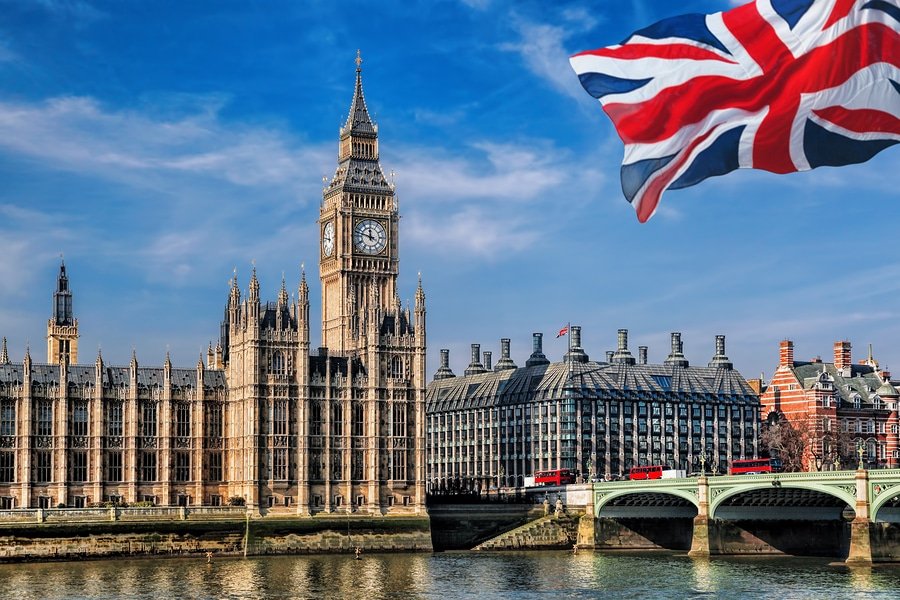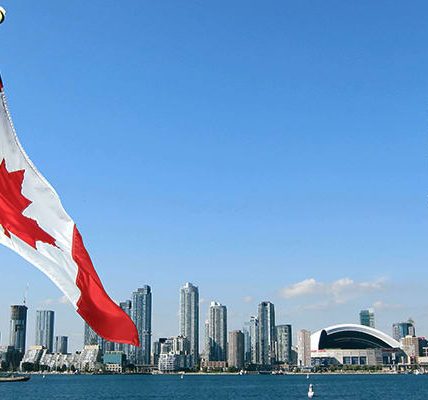United Kingdom Study Requirements – The United Kingdom (UK) is one of the most sought-after destinations for international students, known for its prestigious universities, rich history, and diverse culture. United Kingdom Study Requirements.
The UK is home to some of the world’s most renowned educational institutions such as the University of Oxford, University of Cambridge, London School of Economics, and Imperial College London. Each year, thousands of students from all corners of the globe travel to the UK to pursue their higher education.
However, studying in the UK comes with its own set of requirements, from academic qualifications to visa processes. This guide will provide an in-depth overview of the essential study requirements for international students who wish to pursue higher education in the UK.
Whether you are applying for undergraduate, postgraduate, or research programs, understanding these requirements is crucial for ensuring a smooth application and admission process.
1. Why Choose the United Kingdom for Studies?
Before delving into the requirements, it’s important to understand why the UK continues to be a top choice for international students. Here are several reasons why the UK is an attractive study destination:
a. World-Class Education
The UK boasts some of the best universities in the world. The country is home to many institutions that rank highly in global university rankings, offering students an opportunity to receive a high-quality education. British universities are known for their rigorous academic programs, diverse research opportunities, and global recognition.
b. Multicultural Environment
The UK is a melting pot of cultures, offering international students a chance to experience life in one of the most diverse societies in the world. The rich cultural experiences and opportunities to interact with students from different backgrounds make it an enriching experience both academically and personally.
c. Variety of Courses
The UK offers an extensive range of courses across different disciplines. Whether you are interested in engineering, business, arts, humanities, science, or law, there are countless options for students to choose from. Many programs are also available in English, making it easier for international students.
d. Work Opportunities
International students in the UK are allowed to work part-time during their studies. This allows students to gain work experience, develop skills, and supplement their living expenses.
Additionally, after completing their studies, international students can apply for a Graduate Visa to stay and work in the UK for up to two years (three years for PhD graduates).
2. Study Requirements for International Students in the UK
To study in the UK, international students need to meet specific academic, language, and financial requirements. The exact criteria will depend on the level of study and the institution you are applying to, but here are the general requirements you need to fulfill:
a. Academic Requirements
Undergraduate Programs:
To be eligible for an undergraduate program in the UK, you must meet the following academic requirements:
- Secondary Education: You must have completed your secondary education and obtained a high school diploma or equivalent qualification. International qualifications such as the International Baccalaureate (IB), A-levels, or a high school diploma are generally accepted.
- Subject-Specific Requirements: Some programs may have specific subject prerequisites. For example, a course in engineering may require students to have studied mathematics and physics at the high school level.
- Grades: Different universities have varying grade requirements, but most competitive programs require high grades. For instance, top universities may ask for specific A-level or IB grades, while others may accept students with slightly lower scores.
Postgraduate Programs:
For postgraduate programs (master’s or doctoral programs), the requirements are different. Generally, you will need:
- Undergraduate Degree: You must have completed a bachelor’s degree from a recognized institution, with a strong academic record. Most universities require a minimum grade of 2:1 in the UK system (equivalent to a GPA of 3.0 to 3.5).
- Relevant Field of Study: Some postgraduate programs may require students to have a background in a specific area of study. For instance, a master’s in business administration (MBA) might require you to have a degree in business or economics.
- Work Experience: For some postgraduate programs, particularly MBAs or professional courses, universities may require students to have relevant work experience in addition to academic qualifications.
Doctoral Programs:
For doctoral (PhD) programs, applicants need to have:
- Master’s Degree: A master’s degree or equivalent in a relevant field of study is usually required.
- Research Proposal: Doctoral candidates must submit a research proposal outlining the area of study they plan to pursue during their PhD. This proposal is reviewed by the faculty, and successful applicants are assigned a supervisor.
b. English Language Proficiency Requirements
Since English is the primary language of instruction at UK universities, international students whose first language is not English are required to prove their proficiency in the language. The most commonly accepted English language proficiency tests include:
- IELTS (International English Language Testing System): The majority of UK universities accept IELTS scores. Typically, a score of 6.0 to 6.5 is required for undergraduate courses, while postgraduate programs may require a score of 6.5 to 7.0. Some competitive programs may require higher scores.
- TOEFL (Test of English as a Foreign Language): Some universities accept TOEFL scores, generally requiring a score between 79 and 100 for undergraduate programs and 100 to 110 for postgraduate programs.
- PTE (Pearson Test of English): Many universities accept PTE Academic with a typical score requirement between 50 and 60 for undergraduate programs and higher scores for postgraduate studies.
- Cambridge English Examinations: Some universities accept scores from Cambridge exams such as the C1 Advanced or C2 Proficiency exams.
If you do not meet the required English language proficiency scores, some universities offer pre-sessional English language programs designed to help you improve your language skills before starting your main course of study.
c. Application Process
The application process for studying in the UK typically follows these steps:
- Choose a Course and University: Research universities and courses that align with your academic interests and career goals. Websites like UCAS (for undergraduate applications) and university-specific portals (for postgraduate applications) can help you in the selection process.
- Prepare Documents: The necessary documents include:
- A completed application form (online via UCAS or university-specific portal)
- Academic transcripts and certificates
- Proof of English language proficiency (IELTS, TOEFL, etc.)
- Letters of recommendation (usually for postgraduate courses)
- A personal statement or statement of purpose
- CV (for postgraduate or research programs)
- Passport copy
- Submit Your Application: For undergraduate programs, applications are submitted through UCAS (the centralized application service). For postgraduate programs, applications are submitted directly to the university through their online portal.
- Pay Application Fee: Most universities charge an application fee, although UCAS charges a fee for undergraduate applications.
- Wait for Admission Offer: Once your application is reviewed, universities will issue an offer letter (conditional or unconditional) based on your academic qualifications and documents.
- Accept the Offer: If you are accepted, you need to formally accept the offer and pay any necessary deposits.
d. Visa and Immigration Requirements
After receiving an acceptance letter from a UK university, the next step is to apply for a student visa. International students will need a Tier 4 (General) student visa to study in the UK.
To qualify for a student visa, you must meet the following requirements:
- Confirmation of Acceptance for Studies (CAS): Your university will provide you with a CAS number, which confirms your admission to the university and the details of your course.
- Financial Requirements: You must prove that you have sufficient funds to support yourself during your studies. Generally, you need to show you have at least £1,334 per month for living expenses if studying in London or £1,023 per month if studying outside London. In addition, you must show you can pay for your tuition fees.
- English Proficiency: You need to demonstrate that you meet the English language requirements as part of your visa application.
- Application Fee: You will need to pay the visa application fee, which is typically around £348 (for a student visa), though it may vary based on your circumstances.
- Biometric Information: You will need to provide biometric information (fingerprints and photographs) as part of your visa application.
Once your visa is approved, you will be able to travel to the UK and begin your studies.
e. Financial Considerations
Studying in the UK can be expensive, but there are several ways to manage the cost of education:
- Tuition Fees: The tuition fees vary depending on the program and the university. Undergraduate programs can cost between £10,000 and £38,000 per year, while postgraduate programs typically range from £11,000 to £40,000.
- Scholarships and Grants: Many UK universities offer scholarships to international students based on academic merit, financial need, or specific course requirements. The UK government also offers several scholarships, including the Chevening Scholarship for postgraduate students.
- Part-time Work: International students are permitted to work part-time during their studies (up to 20 hours per week during term time and full-time during holidays). This can help offset living expenses.
f. Living Costs in the UK
The cost of living in the UK can vary significantly depending on the city and lifestyle. On average, international students should budget between £1,000 and £1,500 per month for living expenses, which include accommodation, food, transport, and other personal expenses. London and other major cities tend to be more expensive compared to smaller towns or cities.
g. Post-Graduation Work Opportunities
After completing a degree in the UK, international students can apply for a Graduate Visa, which allows them to remain in the UK for up to two years (or three years for PhD graduates) to find work or start a business. United Kingdom Study Requirements.
The Graduate Visa provides an excellent opportunity to gain work experience in the UK, which can be valuable for building your career. United Kingdom Study Requirements.
Conclusion
Studying in the United Kingdom is a fantastic opportunity for international students to receive a world-class education, immerse themselves in diverse cultures, and gain work experience. United Kingdom Study Requirements.
By understanding the study requirements, application procedures, and visa processes, you can successfully navigate your way through the application process and make your dream of studying in the UK a reality. With the right preparation and dedication, studying in the UK can be a life-changing experience that opens doors to global opportunities.




